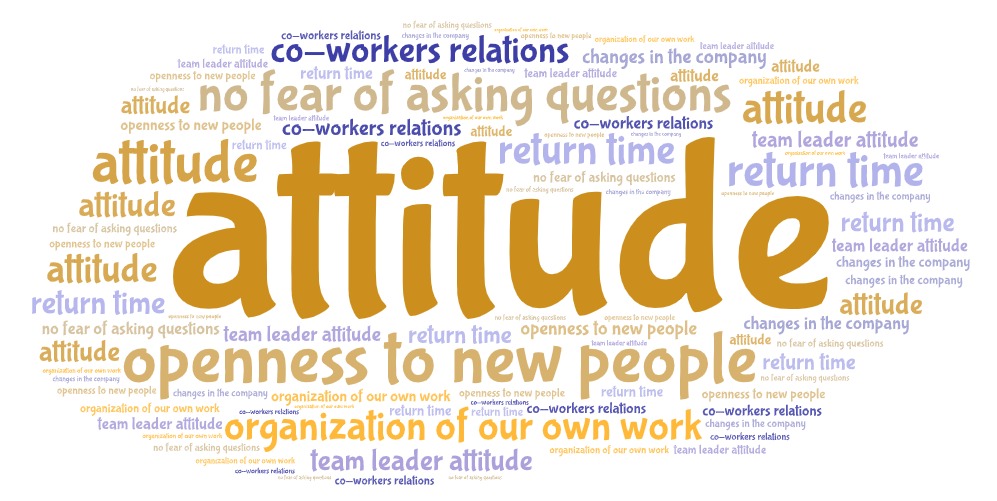How to get back to programming after a more than 1.5 year gap - subjective thoughts and tips
Hi, I am Magda and I will tell you a story about coming back to work after a break of 21 months and 2 days. Everything here will be a subjective perspective about my experience.
Maybe you are planning a one year trip around the world? Perhaps you will have a longer medical break? Or maybe just like me, you come back after maternity leave. I belive that all these stories could be quite similar. Let’s check how it was.
My first three months #
First month – mix of excitation and fear #
You’re happy to be back, but at the same time you wonder what it’ll be like. It’s normal to be afraid. The first days are spent on doing OHS (occupational health and safety) training, updating the system and applications to the latest versions. For half a week you struggle with access credentials that you have lost in the meantime. ;–)
For me, the biggest advantage was returning to practically the same team. In the meantime, it only grew, but no one left. I think that’s a great comfort. Despite the fact that many things were new anyway, I knew my co-workers who welcomed me warmly.
Second month – only fear #
Suddenly you realize how many things have changed, how many things you have to catch up on and how many things you have forgotten. It’s not a good feeling. This is the most difficult time because you usually confront your assumptions about returning with reality.
You may be surprised, but my husband also works at Allegro. Thanks to him I was up to date with general company matters. I knew about the most important company news throughout my absence, which was quite useful after my return. A minor drawback was that occasionally, I felt a sense of regret for what I was missing, like our annual internal conference Allegro Tech Meeting (ATM) or company events. Of course I wasn’t up to date with domain things related specifically to the products my team is responsible for. Just like I wasn’t up to date with technology changes. For example it turned out that we use libraries such as zod, Redux Toolkit with RTK Query and a few others in the new project which I wasn’t familiar with. During the break I had other priorities and the first collision was quite painful.
Third month – a light in the tunnel and feeling of relief #
You notice that you are slowly getting over the technical problems. With little hints from the team, it turns out that you still remember most of the professional and company knowledge. And you catch up on new things quickly. The work is accelerating and slowly giving the same satisfaction as before.
You start your tasks, you get going, you’re back in the game. Of course, you still need time to catch up, but it’s not that bad. You start taking on bigger tasks, you write down your professional goals, you take part in discussions on topics that you have already absorbed.
Challenges after returning to work #
Family #
I agreed with my husband that for the first month or two he would take care of our son during any illnesses, so that I could focus on work. I didn’t expect that our son would be sick practically non-stop during that time, infecting both of us. It was hard at times. On the other hand, I think that being a parent makes me more effective at work, I’m less stressed than before and I don’t take myself so seriously now. Returning to work gives a lot in the context of self-fulfilment. If of course you like what you do. ;-) It definitely did for me.
Regretting lost opportunities #
In economics, there is a concept called opportunity cost. By definition it is:
is the potential forgone profit from a missed opportunity—the result of choosing one alternative over another.
When we take a break from work, we might feel like we missed out on opportunities, such as promotions. For ambitious individuals, it can be challenging to accept these lost chances. It’s important to remember that it’s not always possible to catch up quickly but everything is still ahead of us. However, our time away doesn’t make us vanish; it’s a period of growth, whether professional or personal.
Tips and thoughts #
What is worth doing – selfcare #
After such a long hiatus from work, you will surely wonder what it’s like to come back and whether you will be able to cope. You will feel a lot of stress. Maybe it’s a good time to do something for yourself. Read a book about fighting stress, listen to an inspiring podcast, relieve your emotions by doing sports.
I can recommend you some cool titles. Positions particularly for women like: The moment of Lift by Melinda Gates (PL / ENG) or Becoming by Michelle Obama (PL / ENG). And other general books like: Twin Ambitions: My Autobiography by Mo Farah (PL / ENG) or Unstoppable: The Incredible Power of Faith in Action by Nick Vujicic (PL / ENG). And some more developmental books that can help you get back to work: Atomic Habits (PL / ENG) and Essentialism: The Disciplined Pursuit of Less (PL / ENG).
If you are from Warsaw it may be worth buying Mikrowyprawy z Warszawy PL which shows great places to visit especially on family trips, but I think everyone can use it and will be equally satisfied. ;-)
For me the best way to gather my thoughts at that time were long walks with a podcast in my ears. For women returning from maternity leave I highly recommend interviews by Justyna Szyc-Nagłowska (you can find them on spotify).
And for all those who have never tried - I recommend audiobooks! I’ve taken then up just before I went back to work. If you want to listen about business adventures and starting start-ups in Africa you can reach for “Goniąc czarny jednorożce” by Marek Zmysłowski (also available on spotify).
You know yourself, you know what helps you and what doesn’t. Try to relieve the tension so that you can come back with an open mind and willingness to take action. Enjoy your last bit of completely free time.
What is worth doing – company matters #
- One month before, remind the team leader that you are coming back. Ask him if there is team building being organized and declare your willingness to participate.
- One week before coming back, ask your team leader and HR partner what documents or obligatory trainings like OSH you should sign up for or do first after coming back.
- Mark as read all emails older than 2 months. I know that there is a willingness to read every single message from 2 years’ time, but really it’s a waste of your time. You were gone, you can’t change it, you will miss some things, but you can catch up to them as you work. Search only for every emails from your HR. It can be important.
- Sign up to go for an onboarding for new employers (if your company organizes events like that) and take part actively. You will catch up on company–wide backlogs and learn new company–wide tools and guidelines.
- Read the documentation/team wiki – it helps you recall basic information.
- Bring cake on your first day in the office with your colleagues. This will break the ice and will be a good sweet start. Your co–workers will thank me. ;–)
What is worth doing – technical matters #
- Search Technical Roadmaps for current year and read about the keywords that you don’t know.
- See the libraries that are now used in the project. Take a look at the documentation of those you don’t know.
- Ask for help! When you come back, start writing down the topics that you would like to catch up on or that you are not familiar with. Write down all your questions in one place. After a while, ask your team members to explain them.
Factors dependent on you: #
- your attitude,
- no fear of asking questions,
- openness to new people who weren’t in the company before, realize that now you are the new one,
- organization of your own work (no one will guide you, you have to take care of your possible shortcomings!)
Factors beyond your control: #
- co-workers’ attitude and willingness to help,
- team leader attitude and your cooperation,
- changes at the company: what has been happening in the company during the time you weren’t there e.g. how much the processes have changed,
- return time: In what period do you come? Busy? Or maybe vacations? Maybe there’s no one to introduce you to work? Maybe it’s better to come back, for example, in January than before the holidays when everyone is on leave.

Generated by wordart
Summary #
In retrospect, I can say that there is nothing wrong with taking a break from work. Many people have such breaks, especially women. Although let’s be honest, returning after such a long time is a significant challenge which affects your mental well-being.
My team leader’s assurance that I had a place to come back, along with providing sufficient time for implementation, was invaluable in supporting my return. In such cases, the support of a direct superior is truly indispensable. The helpful and friendly team also played a crucial role.
I know that not everyone has a team as cool as mine at Allegro. But I believe everyone should understand the challenges of returning to work after several months. It would be beneficial if companies introduced extra onboarding programs for employees returning after long breaks and placed more emphasis on addressing their needs. This approach would enable them to quickly adapt and fulfill their duties effectively. Which is a win for both sides. And not because these people need to be favored, but because their situation is specific.
If you are coming back after a long break, enjoy your return to professional life. Remember that a break is not the end of the world. Keep your head up, do your thing. You don’t even know how quickly you will settle in the old-new reality. After some time, you will start working as if nothing had ever changed or you will be just a new version of yourself.
